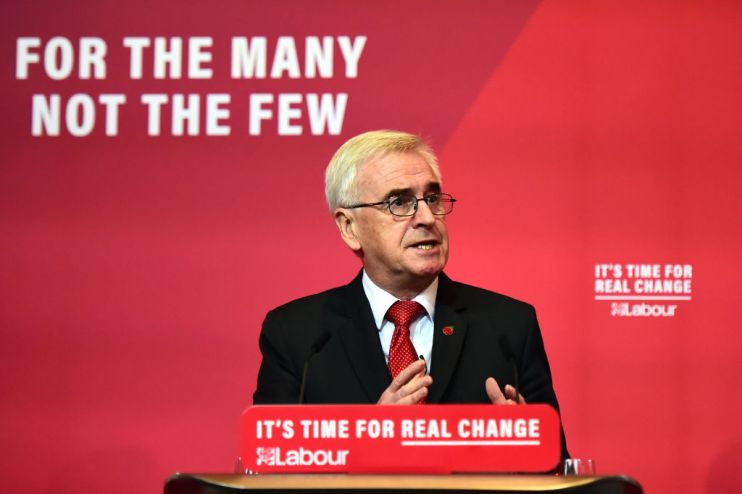The Tories and Labour both seem happy to throw fiscal responsibility to the wind

The “money men” are at it again.
Yesterday, chancellor Sajid Javid and shadow chancellor John McDonnell took part in a spending showdown, announcing pledges and making their cases for different economic visions for Britain in years to come.
Labour’s spending promises are staggering. Essentially doubling the figures from the 2017 manifesto, the party has ditched its self-imposed fiscal responsibility rules and is now pledging a yearly borrowing commitment of £55bn — amounting to £400bn over the next decade.
These figures roughly account for what Labour plans to spend on existing state projects — including the NHS, education, efforts to tackle climate change, and public transport schemes. But they don’t include the costs attached to the party’s plans to take other industries back into public ownership, such as utilities and the entire rail network.
These numbers are off the scale. The chances of offsetting such spending increases with a boost to growth are slim-to-nothing, as the party is also planning tax rises and more red tape around business — a concoction which does little to encourage free enterprise, private sector job creation, or innovation.
To deliver on these spending commitments in a fiscally responsible way that wouldn’t spike the deficit or send UK debt soaring further, taxes would undoubtedly have to be hiked for the vast many, along with the exclusive few.
But Labour’s explicit pledge to borrow suggests that the party doesn’t plan to deal with any of these burdensome costs now. It will be the duty of the younger generations to pay off today’s gargantuan bills down the road.
Unsurprisingly, Javid hit back hard on Labour’s proposals yesterday, highlighting how irresponsible it would be to undo a decade of hard work to reduce the deficit.
The problem, of course, is that the Conservatives are taking part in their own rule-loosening activity, to make way for the party’s promises on the NHS, police numbers, and education spending.
Spending uncosted tens of billions would obviously not have the same impact as spending hundreds of billions of future taxpayer money. But it does make it far more difficult to argue that your opponents should stay within the lines of the fiscal colouring book when your own lot are drawing all over the paper. The Conservatives’ new three per cent public investment limit has been estimated to amount to £20bn of new spending over the next parliament.
The Conservatives deserve credit for getting public finances under control after the recession, but that does not give them the right or authority to risk reversing the downward trend of the deficit when it suits them in an election cycle. The public purse does not belong to the Tories or Labour, but rather to each and every taxpayer, whose money makes up the pot of gold they have to spend on their priorities.
With the manifestos still unpublished, there is time for both parties to get their books in order. While Labour seems committed to borrowing its troubles away, perhaps we’ll see signs from the Conservatives that there is a meaningful plan to cost their pledges.
But it seems that the economic thinking in both parties has a similar baseline: spending promises to the public matter more than their safe delivery.
Main image credit: Getty